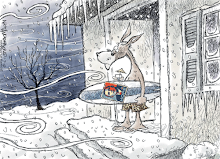The passage of the financial regulatory bill through the Senate signals the loss of Ron Paul's efforts to limit the power of the Federal Reserve - his lifelong mission in congress. Not only did the bill fail to scale back the powers of the Fed, but it actually expanded them, ensuring that it will remain the pre-eminent regulator in the industry.
Paul has argued for years that the Fed's supervisory oversight of banks and interest-rate decisions caused the meltdown of 2008 and he hoped to put serious controls on the body to prevent similar future harm. Instead, congress gave the Fed more power and more tools to ostensibly prevent financial crises by making it the primary regulator for large financial firms of all kinds, rather than just banks.
This comes along with a sweeping rewrite of the financial rules which, of course, greatly expands the power of government over banks, markets and the industry. Many analysts familiar with the legislation say the usurpation of federal power in the bill is second only to those extended during the Great Depression.
The depression-era bills charged the Fed with promoting price stability and maximum sustainable employment. The new bill adds the maintenance of financial stability to the list of Fed responsibilities. Specifically, it will be responsible for deciding whether the council should vote to break up "too big to fail" companies if they threaten the stability of the financial system. It will also now have the power to force any large financial companies—not just banks—to boost capital and liquidity, which means it will regulate large hedge funds.
The power to decide who is too big and thus, tamper-worthy, will not involve a mathematical calculation. Politicians will intervene and the Fed will act accordingly. How can we give the federal government this much power over our "free" market? It is an utter disgrace.





No comments:
Post a Comment